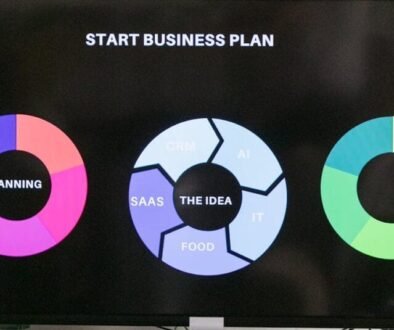Secure Your Future: 7 AI-Resistant Jobs for Introverts Craving Stability
There’s real opportunity for introverts facing AI disruption: at Your Career Place I share seven AI-resistant careers where you can leverage deep focus, analytical thinking and quiet one-on-one work to build steady income. I walk you through practical steps so you can position your skills, and Your Career Place supports your transition every step of the way.
Key Takeaways:
- Jobs like software development, data science, actuarial work, cybersecurity, research science, occupational therapy and counseling let introverts do deep, focused work where human judgment and empathy still outpace automation—these roles offer strong growth and long-term stability.
- At Your Career Place, we suggest building skills that complement AI: domain knowledge, problem-framing, creative thinking, hands-on assessment and people skills for one-on-one settings—combine those with practical tech fluency to stay competitive.
- Practical next steps: target roles that match your energy (minimal large-group networking), gain certifications or project experience, and use Your Career Place resources to map a steady, AI-resistant career path that fits your introvert strengths.
Understanding AI and Its Impact on the Workforce
I see AI reshaping roles unevenly: Goldman Sachs Research estimates AI could displace 6–7% of the U.S. workforce if adoption accelerates, while many skilled professions we discussed show strong BLS growth projections. At Your Career Place, I urge you to focus on roles that demand judgment, creativity and one-on-one interaction—those human strengths will anchor long-term stability.
The Rise of AI Technology
Since tools like ChatGPT emerged in late 2022, transformer-based models have sped up automation of text, code and image tasks; I watch companies deploy these models to draft reports, triage support tickets and generate marketing content. That rapid improvement means routine production tasks shrink, while oversight, domain expertise and interpretive skills grow in value—areas you can target to stay relevant.
Jobs Most at Risk
Roles built on repetitive, rule-based tasks face the steepest near-term impact: data-entry clerks, telemarketers, basic bookkeeping roles and transactional customer-service agents are already being replaced by chatbots and robotic process automation. I tell clients that if your daily work is predictable and easily described as a sequence of rules, AI can likely automate much of it.
Digging deeper, AI excels at triage and pattern-matching—scanning invoices, routing support requests and screening resumes—so jobs composed largely of those activities will shrink; banks using automated claim triage and retailers adopting self-checkout are clear examples. I recommend you map your role into discrete tasks, then upskill away from automatable duties toward negotiation, complex problem-solving or empathetic client work that keeps your career resilient with guidance from Your Career Place.
The Importance of Job Stability
Job stability matters more than flashy titles when AI churns headlines. Goldman Sachs estimates AI could displace 6–7% of the U.S. workforce, yet BLS projections show software development (+15%), data science (+34%) and cybersecurity (+29%) growing through 2034. At Your Career Place, I help you prioritize roles that offer steady demand, clear career ladders and predictable income so you can plan long-term without constant churn.
Economic Factors
Market forces—industry growth, regulatory shifts and capital allocation—determine which roles weather automation. I track BLS trends and corporate hiring to identify pockets of sustained demand, such as healthcare and cybersecurity, where budgets and compliance needs protect jobs.
- High-growth sectors create hiring pipelines: data science (+34%) and occupational therapy (+22%) signal long-term openings.
- Wage resilience and cross-industry applicability keep roles valuable even as tools change.
- Recognizing that macro estimates (6–7% displacement) hide wide variance by occupation helps you choose safer career paths.
Personal Well-Being
Anxiety from unstable work erodes focus and energy; I’ve seen clients like the woman hiding in the supply closet regain confidence after switching to introvert-friendly roles. Choosing jobs with predictable routines, lower social fatigue and steady demand directly reduces burnout and improves mental health—an outcome I emphasize at Your Career Place.
Longer-term, I encourage you to evaluate jobs by daily cadence and social load: asynchronous communication, solo deep-work blocks and one-on-one interactions reduce sensory overload for many introverts. For example, therapists (BLS +17%) and research scientists (+20%) offer structured schedules and meaningful, focused work that support emotional recovery. I coach clients to negotiate flexible hours, set boundary rituals (fixed response windows, protected focus time) and build income buffers so career stability also supports sleep, relationships and resilience against future AI-driven shifts.

The Value of Introverted Strengths
I see how deep focus, careful listening and strong written communication give you an edge in roles machines struggle with; Goldman Sachs estimates AI could displace 6–7% of U.S. jobs, yet BLS forecasts like 15% growth for software developers show continued demand for human-led work. At Your Career Place I point readers toward practical guides such as 7 AI-Proof Jobs For Introverts Who Want Stability to map next steps.
Unique Skill Sets of Introverts
I advise you to lean into analytical depth, pattern recognition and attentive listening—skills actuaries use to model unexpected risks and researchers use to design reproducible experiments. I’ve helped clients translate those strengths into data science and research roles by emphasizing long-form reports, methodological rigor and clear written recommendations that outperform generic AI summaries.
Work Environments That Favor Introverts
You perform best in settings that protect uninterrupted focus: remote-first companies, small R&D teams, quiet labs and organizations that prioritize asynchronous communication. I encourage targeting firms aligned with BLS growth areas like cybersecurity (29% projected growth) and data science (34%) because they often offer structured, low-interruption workflows.
I tell clients to audit employers for metrics like percentage of remote staff, bookable private rooms and recorded meetings for asynchronous review; when I coached a former salesperson into a cybersecurity analyst role she negotiated two focus days per week and later reported higher productivity and job satisfaction. Your Career Place recommends documenting these arrangements in offer talks and using async video, ticketing systems and shared docs to defend your focus time.

Overview of AI-Resistant Jobs
AI-resistant roles center on judgment, tacit knowledge and human nuance that machines can’t replicate. I lean on Goldman Sachs’ 6–7% displacement estimate and BLS growth figures—15% for developers, 34% for data scientists, 29% for security analysts—to show this is selective churn, not mass obsolescence. At Your Career Place I focus on jobs where deep focus, one-on-one interaction and cross-domain expertise create long-term stability for introverts seeking predictable, low-social environments.
Characteristics of AI-Proof Roles
These jobs demand handling ambiguity, ethical judgment and real-time adaptation—skills you can’t fully encode. I look for roles requiring deep domain expertise, interpretive thinking, hands-on assessments and sustained creative problem-solving, such as therapists, researchers and actuaries. Employers value people who translate messy requirements into strategy, communicate complex insights and navigate novel scenarios, which keeps these positions resistant to automation.
Industry Trends Supporting Stability
Labor-market trends are reinforcing human-led work: aging populations drive a 22% rise in occupational therapy roles, mental-health demand pushes a 17% increase for therapists, and escalating cyber threats support a 29% surge in security analysts. I at Your Career Place monitor R&D investment and healthcare expansion that sustain research and clinical roles; even companies adopting AI still need humans to interpret outputs and set strategy, so these sectors remain hiring priorities.
Digging deeper, BLS projections and Goldman Sachs data show where you should invest time: cybersecurity, healthcare and data roles have quantifiable hiring momentum. I recommend targeted credentials—CISSP for security, OT degrees for rehabilitation, coding bootcamps or data certificates—and building demonstrable work (projects, case studies, clinical hours). Your Career Place can help you prioritize the 3–12 month pathways that employers in these stable fields actually reward.
Detailed Exploration of the 7 AI-Resistant Jobs
I break down each role with practical details you can act on, drawing on BLS growth figures and hands-on experience at Your Career Place; my goal is to show where your introverted strengths—focus, analysis, deep work—translate into durable careers, and where to invest time learning skills that complement AI instead of competing with it.
Software Developer
I’ve seen software development reward concentrated, independent work: BLS predicts 15% growth through 2034, driven by demand for custom systems and apps; I advise you to prioritize architecture, code review, and systems thinking—areas where human judgment outperforms code-generation tools and where remote, deep-focus schedules fit introverted rhythms.
Data Scientist
Data science combines statistics, domain knowledge and storytelling—BLS forecasts 34% growth through 2034—so I coach clients to master feature engineering, causal thinking and communication of insights, not just model-building; at Your Career Place I emphasize translating models into business decisions, which is where you add the most value.
I recommend you build a portfolio showing real-world impact: A/B tests you designed, models that changed pricing or reduced churn, and clear narratives tying metrics to outcomes; I find hiring managers favor candidates who can say, “I improved retention by X%,” because AI can fit models but not the strategic framing you provide.
Actuary
Actuarial work rewards long-form analytical focus—BLS projects 14% growth from 2024–2034—and I tell clients that solving pricing, reserving and stress-testing problems requires judgment about rare events, regulatory shifts and behavioral change, skills where human intuition and cross-domain knowledge beat blind algorithmic trends.
I suggest you pursue the exam track early and specialize (P&C, health, or climate risk) to stand out; I’ve guided candidates who paired spreadsheet mastery with scenario storytelling and landed roles that emphasize model design, governance and regulatory communication—tasks AI can assist with but not replace.
Cybersecurity Specialist
Cybersecurity is a dynamic adversarial field—BLS forecasts 29% growth—where I advise focusing on threat modeling, incident response playbooks and red-team thinking; you’ll use investigative instincts, pattern recognition in context, and strategic prioritization, all of which require human creativity that outpaces automated alerts.
I encourage hands-on labs (CTFs), certifications (e.g., CISSP, CEH) and a small portfolio of incident postmortems; I’ve helped introverts land analyst roles by emphasizing concise written reports and automated tooling they built, demonstrating both technical skill and the judgment to tune defenses against evolving attacker techniques.
Research Scientist
Research roles demand hypothesis-driven work and experimental design—BLS projects 20% growth for related fields—so I tell you to cultivate curiosity, reproducible methods and grant- or patent-ready outputs; deep independent effort, plus the ability to pivot when experiments fail, keeps this work AI-resistant.
I advise publishing reproducible results and building collaborations that showcase your interpretive insights; I’ve seen researchers secure funding by combining novel experimental setups with clear narratives about societal impact, a mix of creativity and communication where human leadership matters more than raw computation.
Occupational Therapist
Occupational therapy offers one-on-one, adaptive care with 22% projected growth through 2034; I coach practitioners to sharpen assessment skills, manual techniques and motivational strategies—micro-adjustments and empathy during rehab sessions are human tasks AI can’t replicate, making this a stable path for introverts who prefer structured interactions.
I recommend clinical hours, specialized certifications, and building a niche (geriatrics, neurorehab); I’ve worked with therapists who used outcome tracking and tailored home programs to demonstrate impact—data that complements their hands-on skills and strengthens career stability in healthcare settings.
Therapist/Counselor
Therapy relies on trust and nuanced interpersonal judgment—BLS projects 17% growth—so I tell you to focus on clinical competencies, supervised hours and a clear therapeutic orientation; one-on-one sessions let introverts provide deep, meaningful help while maintaining boundaries and sustainable caseloads.
I advise developing measurable outcomes (PHQ-9, GAD-7) and a specialty (trauma, CBT, adolescent therapy) to differentiate your practice; I’ve supported clinicians who balance telehealth and in-person work, using structured assessments to demonstrate efficacy and build a referral network that stabilizes income.
Building Skills for an AI-Resistant Career
I recommend blending technical depth with human-centered strengths: learn statistics and coding, earn domain credentials, and practice interpersonal judgment. Goldman Sachs estimates AI could displace 6–7% of U.S. jobs, so I target roles with strong BLS growth—15% for software developers, 34% for data scientists, 29% for info-sec analysts. At Your Career Place I help clients build 12–24 month plans combining formal degrees, micro-credentials and portfolio projects that prove you can solve problems AI cannot.
Education and Training
Stackable credentials accelerate progress: pursue a CS degree or intensive bootcamp for developers, a master’s or Google/AWS certificates for data work, and CompTIA Security+ or CISSP for cyber (CISSP typically requires ~5 years’ experience). Actuaries progress through SOA/CAS exams over several years; occupational therapists need a master’s and state license; therapists often pursue LPC/LCSW. I advise mixing accredited programs, Coursera/edX specializations and 6–12 month capstone projects so you can show measurable outcomes to employers.
Networking and Professional Development
Targeted networking beats generic outreach: optimize your LinkedIn, request 10–15 personalized informational chats per quarter, and join two field-specific associations—ISACA or (ISC)² for security, SOA for actuaries, ACA/APA for counselors. I coach candidates at Your Career Place to publish a quarterly case study or GitHub project and attend at least one industry conference yearly to gain referrals and on-the-record experience that highlights human judgment over automation.
I recommend a practical cadence: reach out to two new contacts per week, schedule one informational interview per month, and follow up within 48 hours with a short, useful note. Maintain a simple spreadsheet or CRM to log skills employers request, then convert gaps into a three-month learning sprint. Share solutions on Stack Overflow or community Slack channels and publish a 500–800 word project summary to demonstrate real-world thinking employers can’t get from AI alone.
To wrap up
Upon reflecting on these seven AI-resistant roles, I at Your Career Place want you to know that leaning into judgment, creativity and human connection will protect your career. I’ll help you translate those strengths into practical steps—training, focused practice and portfolio building—so your path stays steady. Trust Your Career Place to guide your move into work that fits your introvert nature and future-proofs your income.
Thank you for visiting Your Career Place. Here are some articles you might find interesting.
https://yourcareerplace.com/unlocking-your-companys-growth-potential/
https://yourcareerplace.com/job-hopping-loses-appeal-in-frosty-labor-market/




